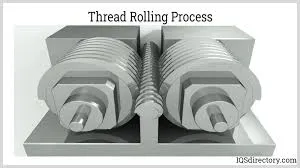
-
 Afrikaans
Afrikaans -
 Albanian
Albanian -
 Amharic
Amharic -
 Arabic
Arabic -
 Armenian
Armenian -
 Azerbaijani
Azerbaijani -
 Basque
Basque -
 Belarusian
Belarusian -
 Bengali
Bengali -
 Bosnian
Bosnian -
 Bulgarian
Bulgarian -
 Catalan
Catalan -
 Cebuano
Cebuano -
 Corsican
Corsican -
 Croatian
Croatian -
 Czech
Czech -
 Danish
Danish -
 Dutch
Dutch -
 English
English -
 Esperanto
Esperanto -
 Estonian
Estonian -
 Finnish
Finnish -
 French
French -
 Frisian
Frisian -
 Galician
Galician -
 Georgian
Georgian -
 German
German -
 Greek
Greek -
 Gujarati
Gujarati -
 Haitian Creole
Haitian Creole -
 hausa
hausa -
 hawaiian
hawaiian -
 Hebrew
Hebrew -
 Hindi
Hindi -
 Miao
Miao -
 Hungarian
Hungarian -
 Icelandic
Icelandic -
 igbo
igbo -
 Indonesian
Indonesian -
 irish
irish -
 Italian
Italian -
 Japanese
Japanese -
 Javanese
Javanese -
 Kannada
Kannada -
 kazakh
kazakh -
 Khmer
Khmer -
 Rwandese
Rwandese -
 Korean
Korean -
 Kurdish
Kurdish -
 Kyrgyz
Kyrgyz -
 Lao
Lao -
 Latin
Latin -
 Latvian
Latvian -
 Lithuanian
Lithuanian -
 Luxembourgish
Luxembourgish -
 Macedonian
Macedonian -
 Malgashi
Malgashi -
 Malay
Malay -
 Malayalam
Malayalam -
 Maltese
Maltese -
 Maori
Maori -
 Marathi
Marathi -
 Mongolian
Mongolian -
 Myanmar
Myanmar -
 Nepali
Nepali -
 Norwegian
Norwegian -
 Norwegian
Norwegian -
 Occitan
Occitan -
 Pashto
Pashto -
 Persian
Persian -
 Polish
Polish -
 Portuguese
Portuguese -
 Punjabi
Punjabi -
 Romanian
Romanian -
 Russian
Russian -
 Samoan
Samoan -
 Scottish Gaelic
Scottish Gaelic -
 Serbian
Serbian -
 Sesotho
Sesotho -
 Shona
Shona -
 Sindhi
Sindhi -
 Sinhala
Sinhala -
 Slovak
Slovak -
 Slovenian
Slovenian -
 Somali
Somali -
 Spanish
Spanish -
 Sundanese
Sundanese -
 Swahili
Swahili -
 Swedish
Swedish -
 Tagalog
Tagalog -
 Tajik
Tajik -
 Tamil
Tamil -
 Tatar
Tatar -
 Telugu
Telugu -
 Thai
Thai -
 Turkish
Turkish -
 Turkmen
Turkmen -
 Ukrainian
Ukrainian -
 Urdu
Urdu -
 Uighur
Uighur -
 Uzbek
Uzbek -
 Vietnamese
Vietnamese -
 Welsh
Welsh -
 Bantu
Bantu -
 Yiddish
Yiddish -
 Yoruba
Yoruba -
 Zulu
Zulu
CE Certification Requirements for Reed Thread Rolling Machines and Compliance in Manufacturing Processes
CE Certification in Reed Thread Rolling Machines
In today's global marketplace, manufacturers face the challenge of meeting international standards to ensure the safety, reliability, and efficiency of their equipment. One area that has gained significant attention is the production of thread rolling machines, particularly those manufactured by companies like Reed. The CE (Conformité Européenne) certification represents a crucial indicator of compliance with European health, safety, and environmental protection standards. This article will explore the importance of CE certification for thread rolling machines and the specific implications for manufacturers and end-users.
Understanding Thread Rolling Machines
Thread rolling machines are critical tools in various industries, especially in the production of fasteners, screws, and bolts. These machines utilize a process of cold forming to create threads on metal workpieces. This method not only enhances the mechanical properties of the materials but also results in reduced waste compared to traditional cutting methods. Given the precision and power required in their operation, these machines must adhere to stringent safety and performance standards.
The Importance of CE Certification
CE certification is a mandatory requirement for products sold within the European Economic Area (EEA). This certification ensures that a product meets all relevant European directives and regulations, which include considerations of safety, health, and environmental impact. For manufacturers of thread rolling machines, obtaining CE certification is not just a regulatory obligation; it also serves as a badge of quality and reliability in the eyes of customers.
1. Market Access CE certification allows manufacturers to sell their machines in the European market without facing regulatory barriers. This is crucial for companies like Reed, which aim to expand their international footprint.
2. Consumer Confidence With CE certification, customers can have confidence in the machine's compliance with high standards. This is particularly important for industries where safety is paramount, such as aerospace, automotive, and construction.
3. Risk Management CE certification involves a thorough assessment of risks associated with the equipment. This process encourages manufacturers to improve their designs and manufacturing processes, ultimately leading to safer products.
4. Legal Compliance Failure to obtain CE certification can result in legal consequences, including fines and the prohibition of product sales. Therefore, ensuring compliance not only protects the consumers but also shields manufacturers from potential legal pitfalls.
ce certification reed thread rolling machines

The Certification Process
Obtaining CE certification generally involves several steps
1. Understanding Applicable Directives Manufacturers must identify which directives apply to their machines. This may include the Machinery Directive, EMC Directive, and Low Voltage Directive, among others.
2. Risk Assessment A comprehensive risk assessment must be conducted to identify any potential hazards associated with the machine's operation.
3. Technical Documentation Manufacturers are required to compile technical documentation demonstrating compliance with EU regulations. This includes design specifications, operating manuals, and test results.
4. Notified Body Involvement Depending on the complexity of the machine, manufacturers may need to involve a Notified Body, an organization designated by EU countries to assess the conformity of certain products before they can be CE marked.
5. Declaration of Conformity Once all requirements are met, manufacturers must issue a Declaration of Conformity, affirming that the product complies with all relevant directives.
Conclusion
CE certification is not only a regulatory requirement but also a cornerstone of quality assurance for thread rolling machines. For manufacturers like Reed, achieving this certification signals their commitment to safety, quality, and performance in a competitive market. Investors and customers alike should recognize the value of CE-certified machinery, as it stands as a guarantee of reliability and compliance with stringent European standards. As global trade continues to expand, the importance of such certifications will only increase, making it essential for manufacturers to prioritize compliance in their production processes.
